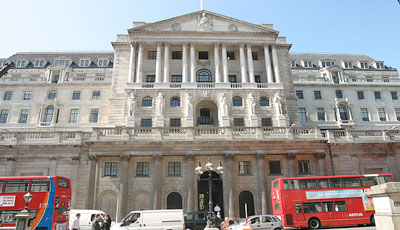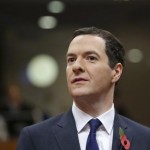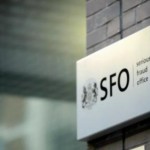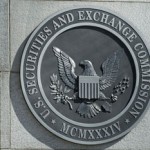SFO launches investigation into Bank of England liquidity auctions

It is unclear whether the Bank’s employees are suspected of involvement in any attempt to rig the auctions, used as emergency lending during the credit crisis
The Bank of England has, today, issued the following statement:
“Following the confirmation by the Serious Fraud Office (SFO) that it is investigating material referred to it by the Bank of England, the Bank can now confirm that it commissioned Lord Grabiner QC to conduct an independent inquiry into liquidity auctions during the financial crisis in 2007 and 2008. Following the conclusion of that initial inquiry, the BoE referred the matter to the SFO on 20 November 2014. Given the SFO investigation is ongoing, it is not appropriate for the Bank to provide any additional comment on the matter at this time.”
Source: Bank of England
The Bank of England is facing an unprecedented criminal investigation by the Serious Fraud Office over emergency lending measures it took at the height of the credit crisis to inject cash into financial markets.
In late 2007 and early 2008, as the authorities struggled to prevent financial markets from freezing up, banks were invited to bid to borrow funds from the Bank of England in exchange for collateral in a series of so-called “auctions”.
It is the conduct of these liquidity auctions that is now being investigated by the SFO, which confirmed it has opened an official investigation. In a statement, the SFO said it was “investigating material referred to it by the Bank of England concerning liquidity auctions during the financial crisis in 2007 and 2008”.
In response, Threadneedle Street said: “The Bank can now confirm that it commissioned Lord Grabiner QC to conduct an independent inquiry into liquidity auctions during the financial crisis in 2007 and 2008. Following the conclusion of that initial inquiry, the BoE referred the matter to the SFO on 20 November 2014.”
The Bank refused further comment. It remains unclear why the investigation was not made public before now.
Mark Carney, the Bank’s governor, had refused to comment when asked about the investigation by MPs earlier this week.
It was also unclear whether the Bank’s employees are suspected of involvement in any attempt to rig the auctions, which were used to ensure that banks were able to function effectively even as liquidity dried up in many parts of the financial markets, before full-blown quantitative easing was launched in 2009.
A spokeswoman was unable to say whether any Bank employees had been suspended while further inquiries are carried out.
Andrew Tyrie, chairman of the Treasury select committee – which holds the Bank accountable – said in a statement that he had been informed about the referral to the SFO on 21 November.
He added: “We must now await the outcome of the SFO’s work. The sooner their findings are published the better.”
The SFO investigation is expected to last for a matter of months.
Grabiner had previously made a separate investigation into the Bank’s role in the rigging of foreign exchange markets. While he largely gave the Bank a clean bill of health, Threadneedle Street announced last week a series of reforms to make its contacts with City traders more transparent, and ensure that any future suspicions about activity in the markets are referred up the management chain.
Minouche Shafik, the Bank’s deputy governor for markets and banking, said it was time to end the era of “constructive ambiguity” in the contacts between Bank officials and City traders, which were traditionally referred to as “fireside chats”. News of this new criminal inquiry will underline fears that the Bank’s relationship with the City was sometimes too cosy.
Britain’s banks have faced a series of damaging crises since 2007, from the mis-selling of financial products to the rigging of Libor, which measured how much they had to pay to borrow from each other.
But despite occasional whiffs of scandal – such as when former deputy governor Paul Tucker was called before the Treasury select committee and grilled over his relationship with disgraced Barclays boss Bob Diamond – as claims of Libor-rigging emerged in 2012, for example – the Bank has so far largely kept itself clear of wrongdoing.
Carney, who took over after the worst of the crisis had abated, has sought to show that it has become a more open and accountable organisation. The Bank has taken on far greater responsibilities since the coalition government came to power in 2010, including the regulation of the banking sector.
George Osborne dismantled the so-called “tripartite” system of regulation, under which a separate body, the Financial Services Authority, was given oversight of the financial sector, and was later widely seen to have fallen asleep at the wheel.
The liquidity auctions carried out in 2007 and early 2008, as confidence evaporated in the wake of the rescue of failed bank Northern Rock, and later, were part of an unprecedented scramble by the Bank and the Treasury to ensure that financial markets could continue to function normally.
Source: the Guardian – SFO launches investigation into Bank of England liquidity auctions





























